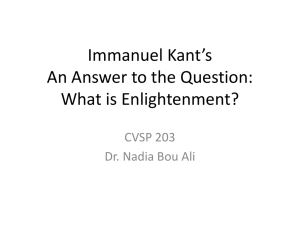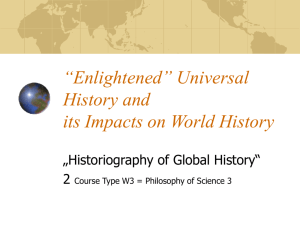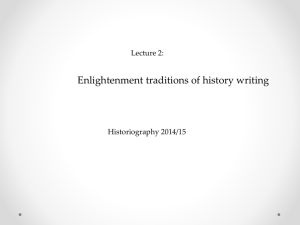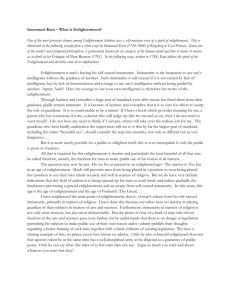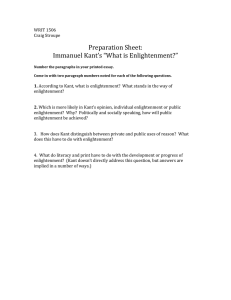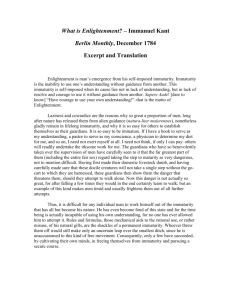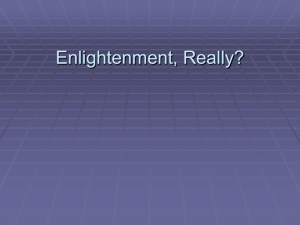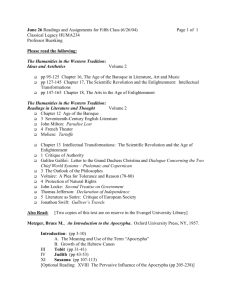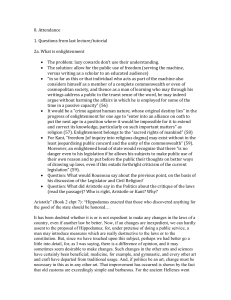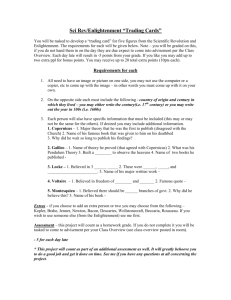Immanuel Kant (1724-1804)
advertisement
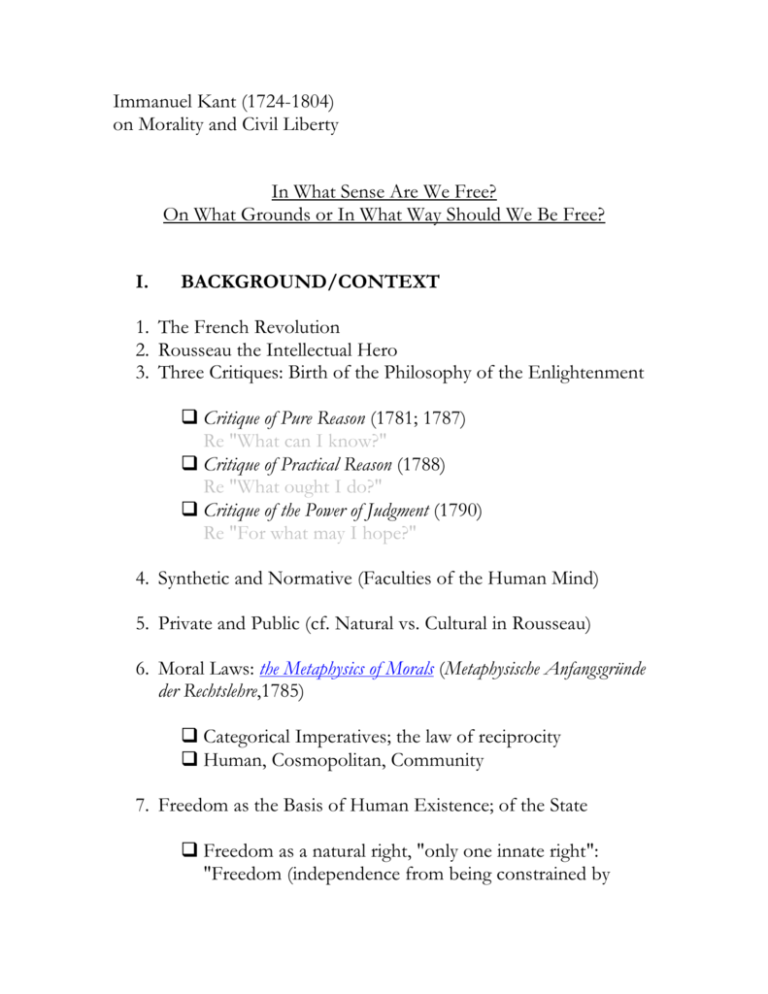
Immanuel Kant (1724-1804) on Morality and Civil Liberty In What Sense Are We Free? On What Grounds or In What Way Should We Be Free? I. BACKGROUND/CONTEXT 1. The French Revolution 2. Rousseau the Intellectual Hero 3. Three Critiques: Birth of the Philosophy of the Enlightenment Critique of Pure Reason (1781; 1787) Re "What can I know?" Critique of Practical Reason (1788) Re "What ought I do?" Critique of the Power of Judgment (1790) Re "For what may I hope?" 4. Synthetic and Normative (Faculties of the Human Mind) 5. Private and Public (cf. Natural vs. Cultural in Rousseau) 6. Moral Laws: the Metaphysics of Morals (Metaphysische Anfangsgründe der Rechtslehre,1785) Categorical Imperatives; the law of reciprocity Human, Cosmopolitan, Community 7. Freedom as the Basis of Human Existence; of the State Freedom as a natural right, "only one innate right": "Freedom (independence from being constrained by another's choice), insofar as it can coexist with the freedom of every other in accordance with a universal law" (Metaphysische Anfangsgründe der Rechtslehre, p.237) Freedom as intellectual autonomy: "An Answer to the Question: What is Enlightenment?" (1784) "Enlightenment is man's emergence from his self-imposed immaturity. Immaturity is the inability to use one's understanding without guidance from another. This immaturity is self-imposed when its cause lies not in lack of understanding, but in lack of resolve and courage to use it without guidance from another. Sapere Aude! [dare to know] "Have courage to use your own understanding!"—that is the motto of enlightenment." II. Principles of Politics, including essay on Perpetual Peace. A Contribution to Political Science [1784] Excerpt, "The Principles of Political Right" (pp. 227-42) Key Points and Questions to Note and Consider: 1. Civil Constitution/Union i. cf. social compact; original contract 2. Why "happiness" is irrelevant to Kantian philosophy of politics? Or worse still, even related to evil, for Kant? 3. Kantian Notion of Freedom 4. Three Rational Principles of the Civil State i. Liberty … ii. Equality … iii. Autonomy (self-dependency or self-sufficiency) …
